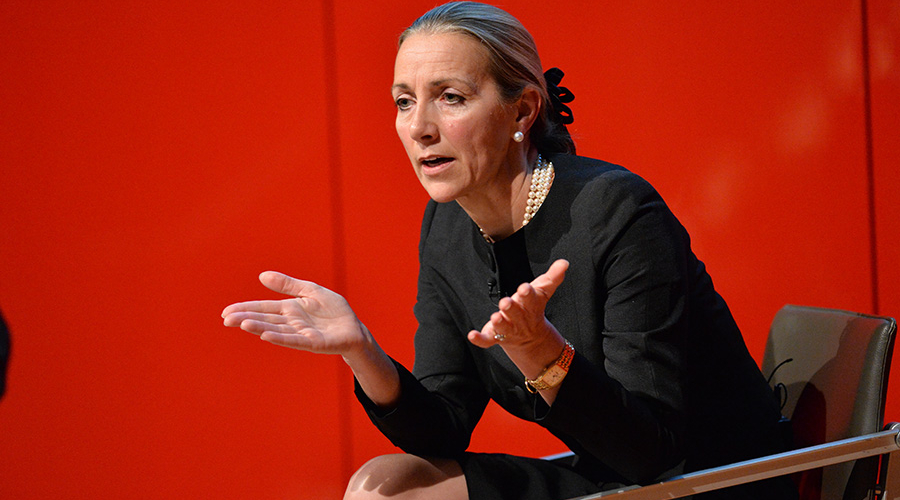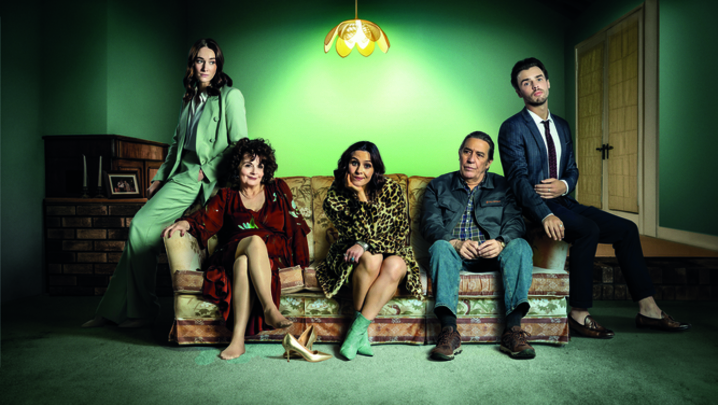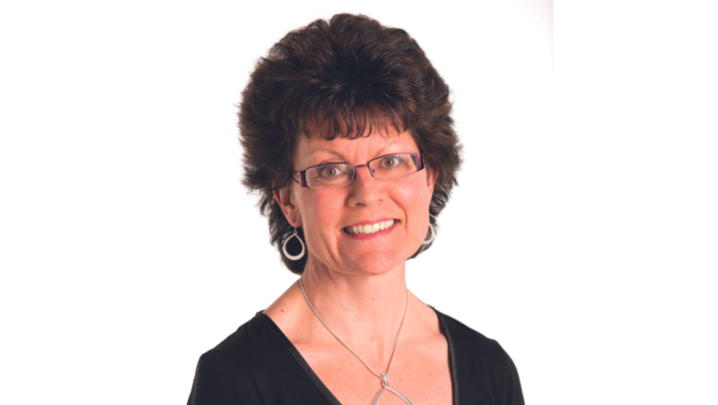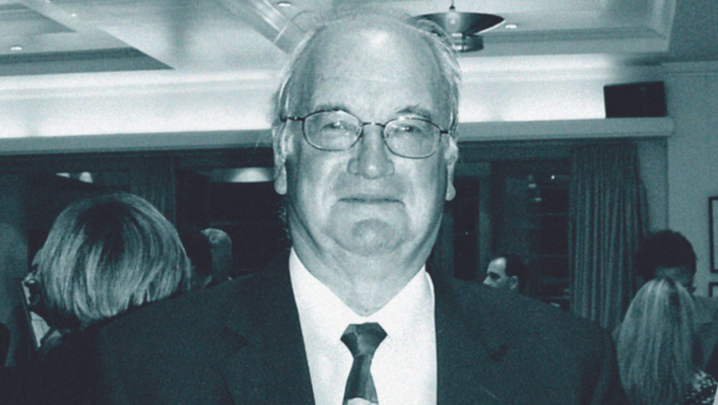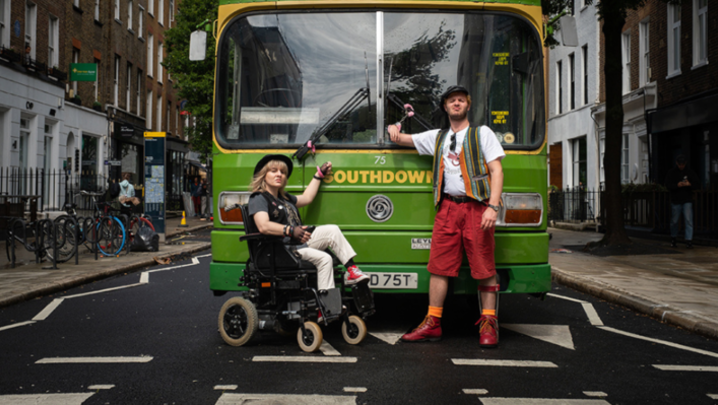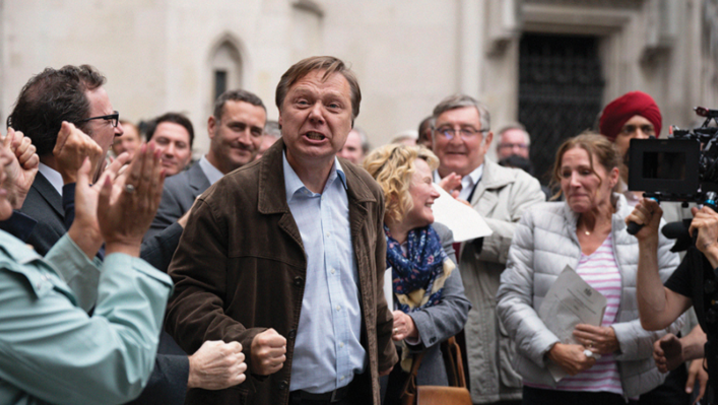Rona Fairhead lays out the BBC Trust’s role in making the BBC fit for purpose
Like almost everyone in this room, I grew up with the BBC. As a child, it was a weekly treat to have supper watching Doctor Who and stay up late for Match of the Day on a Saturday evening.
Some may say there's a huge amount of noisy discussion about the BBC all the time – not least in the media and at Westminster. But Charter review is on the horizon after the election. This will be a very real debate about the future size and shape of the BBC.
I took this job because I believe the BBC Trust needs to be at the heart of that debate. And I believe it needs to be a proper public debate, not one conducted by a small elite.
I hope I'm no one's idea of a cheerleader. I spent a lot of my working life competing hard against the BBC. I'm not someone to gloss over the BBC's faults, problems or challenges.
Today, therefore, I want to recognise the challenges of the BBC, but I also want to put forward what we, the Trust, aim to do as we agree its strategy for the next 10 years.
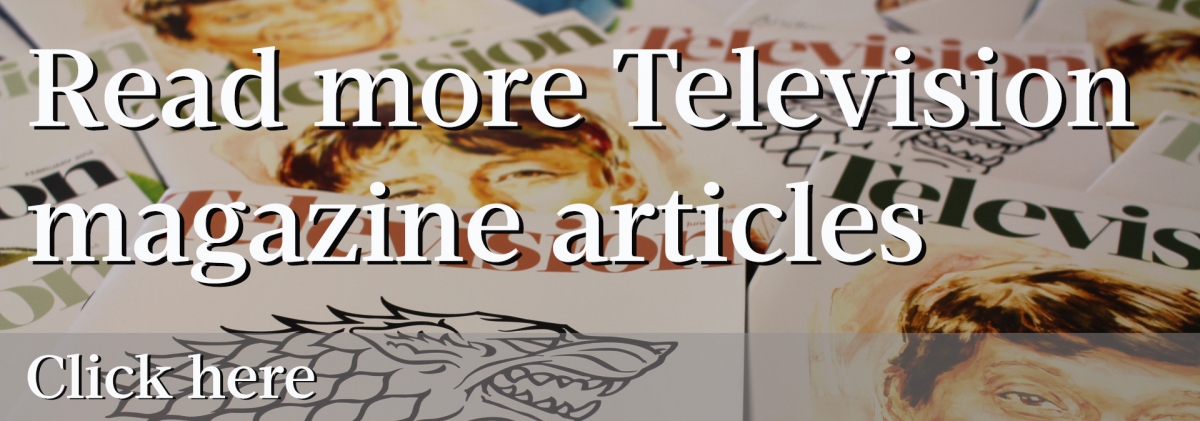 And that is: to make sure that the public voice is heard; to refine – or change – the broader public purposes of the BBC as they are set out in the Charter; and to preserve the BBC's independence, because the BBC belongs to everyone – it is not owned by the government.
And that is: to make sure that the public voice is heard; to refine – or change – the broader public purposes of the BBC as they are set out in the Charter; and to preserve the BBC's independence, because the BBC belongs to everyone – it is not owned by the government.
There is much that has impressed me since arriving at the BBC – its focus on captivating its audience with outstanding creative content and developing creative talent across the UK; and the broad and deep support from the music industry and the independent production sector.
Greg Dyke once described the BBC as an 800lb gorilla. That description is no longer an accurate one: 2014 was a year of extraordinary consolidation among production companies in the UK – some of the BBC's most important creative partners.
Super-indies became mega-indies, as three of the top four production companies were taken over by international groups that dwarf the BBC.
And there's new competition from global giants such as Google, Amazon and Apple.
As for the challenge of managing the BBC's commercial impact, clearly, the corporation is a major market intervention. While it needs to serve all licence-fee payers, it also needs to be sensitive to commercial players operating in the UK market.
However, allegations about the BBC's impact need to be understood in context – and not overdone.
The BBC should be kept out of politics as far as possible. It’s part of my job, and the Trust’s role, to do everything we can to protect it
The BBC faces a real challenge on costs. Homes everywhere are scrutinising cost; never has value for money been more important.
My entire working life has been in the commercial sector, so this is an area where I believe I can bring experience to bear.
In my first four months, my observations are these:
- Much has been done to improve efficiency, but this is a never-ending journey and there is more to do;
- There remains a persistent refrain that the BBC is a difficult organisation to deal with – we've all heard the saying that partnership is something the BBC does to you rather than with you;
- The BBC needs to become more agile – simpler to work in and to work with;
- More needs to be done to get a commercial return for the licence-fee payers from its content – but recognising two key constraints: the complex web of rights and the intensity of global competition.
The Director-General is pursuing plans to address all these areas, by:
- Achieving a £1.5bn savings plan;
- Setting a new culture of "compete or compare", by subjecting the BBC's activities to competition or rigorous benchmarking;
- Developing a simpler, more responsive organisation;
- Becoming a better partner and collaborator; and
- Revisiting the commercial strategy to get the best long-term results for the public.
Let us remember that value for money is not about doing everything for the lowest price in the short term. It's about the role that audiences want the BBC to fulfil. It's about making choices for the long term.
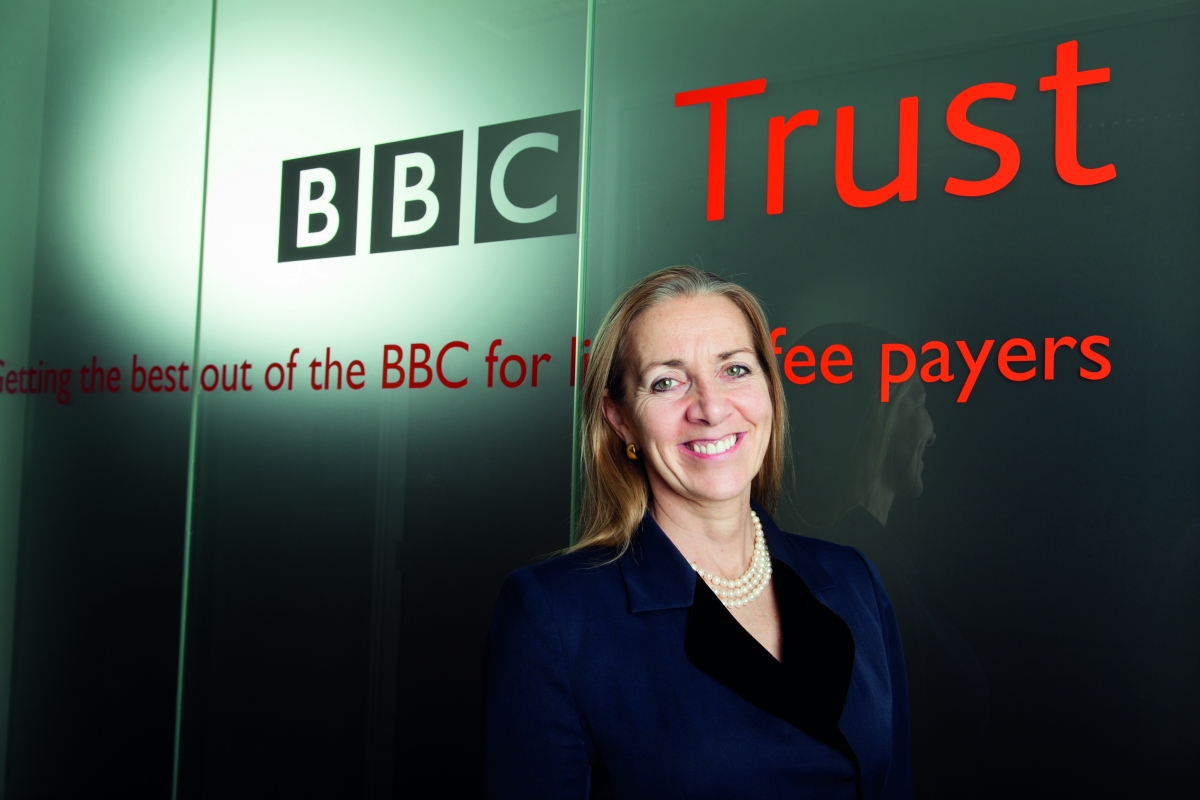 The final challenge is the need for the BBC to connect – and to connect with everyone. The BBC has extraordinary reach: over 96% of the public use its services every week.
The final challenge is the need for the BBC to connect – and to connect with everyone. The BBC has extraordinary reach: over 96% of the public use its services every week.
The future challenge is to continue serving all audiences in a constantly evolving world, where peoples' interests – and their media habits – are diversifying.
Take today's teenagers – or, as I recently heard them described, screenagers. Ofcom's research shows that 11- to 15-year-olds spend as much time watching other things – such as short, online video clips and recorded programmes – as they do watching live TV.
Young people still spend more than 11 hours a week with the BBC – miles ahead of any online video provider. But the BBC will need to find ever more inventive ways to maintain that connection in the future. It needs to build on BBC Radio 1's successful strategy of "listen, watch, share".
And when it comes to using data to understand its audiences, the BBC is a long way behind the competition. This was one of the less pleasant surprises on assuming my new role, although I know that efforts are now being made to catch up, so that the BBC can offer a more personalservice to licence payers.
In addressing these issues properly, I am determined that the public's voice will be heard. One of the Trust's core roles is to represent the licence-fee payer. To do that, we need to know what audiences themselves think in a much more granular way.
We have commissioned an initial piece of audience research to begin that process. We already know that they feel incredibly close to the programmes and services that they use every week.
The new research we've done shows that the public believe the core mission should not change. More than 80% supported the Reithian mission set out almost a century ago – to inform, to educate and to entertain. Indeed, "entertain" was rated highest of all, when people were given a list of words that have been associated with the BBC.
And they still think it's important for the BBC to provide an amazingly wide range of different types of content. News and documentaries top the list of what people say is important, but they also want drama, education, comedy and children's programmes. They want a BBC that is local, regional, national and international. They seem to want it all.
Even the genres that were rated as less important play a key role as part of a universal public service. Arts, music and religious programmes are not always majority pursuits, but they have a very clear public value. And soap operas are among the most valued programmes for millions of viewers every week. They have an important place at the heart of the BBC's schedules.
The current Charter sets purposes that are about: promoting democracy, learning, and creativity; reflecting the nation and regions, as well as enhancing the reputation of the UK internationally; and playing a role in technological development.
Our research asked people what they thought the most important objectives were for the BBC in the future. We wanted to use that question to test the relative importance that they attached to the current public purposes.
For the most part, there was positive endorsement of these purposes. There was near universal support for high-quality, impartial news.
I believe we can do more to clarify the BBC's future role in education. And this is an area where the Trust will want to do more research, to understand what the public think that role should be.
The moves towards greater devolution – whether in Scotland, following the referendum, or in areas such as Greater Manchester – are all part of the changing context that the BBC needs to reflect.
But, alongside the centrifugal force of devolution, the centripetal force still exists. There are many occasions – take the Olympics, the Commonwealth Games or The Great British Bake Off – when I have felt the buzz of truly nationwide excitement.
While audiences have different views about the best and worst programmes, there is a remarkable consensus about one thing: the vital importance of impartiality and independence.
When it comes to using data to understand its audiences, the BBC is a long way behind the competition
In our survey, there was very little support for any government intervention in the BBC. People see a need for independent scrutiny and regulation, but they prefer this to be done by a separate body representing licence-fee payers, not by government or MPs.
Politicians need to understand that strength of feeling about independence. The BBC doesn't belong to the state. It lives and thrives outside Westminster in millions of homes around the country.
The process and outcome of Charter review need to reflect that reality. The BBC should be kept out of politics as far as possible. It's part of my job, and the Trust's role, to do everything we can to protect it.
There are some people who believe the BBC should no longer exist. There are some who believe the BBC has to change. And there are some who want the BBC to fulfil all the priorities it has today.
Some have suggested that the BBC should be much smaller – but let's be clear that a much smaller BBC would not be the BBC as we know it.
It wouldn't have the appeal to broad audiences, it wouldn't have the firepower to create great international journalism or world-beating drama or achieve its public purposes: I see no public appetite for that.
Indeed, we know from our regular tracking research that the majority of people see an annual licence fee of £145.50 as value for money.
In Charter review, we want to test that in more depth, so that we start the negotiation from an informed position.
Before we arrive at any decisions, we should all have a much better understanding of the trade-offs that will have to be made, what audiences expect of the BBC and what they are willing to pay.
There is a lot to be confident about. But all the noise around the BBC can be a distraction. It is my job to push the BBC to be confident and connected with its audience in everything that it does.
This is an edited version of a speech, 'Confident and connected – a BBC fit for the future', given by Rona Fairhead, Chair of the BBC Trust, to the RTS at the British Museum on 3 February. The full speech can be watched or read here.
The evening was chaired by RTS President Sir Peter Bazalgette and produced by Sue Robertson.
Q&A
Should the BBC lead on diversity?
Q. Should the BBC take the lead on implementing diversity strategies?
A. I do agree that the BBC should lead on diversity. And I mean all levels of diversity – national and regional coverage, women and ethnic groups.
The Trust's role is to set targets and aims. This year, there was a particular objective: to increase the diversity and representation of women at the BBC. The organisation has taken some specific actions. It has done research, as well, to understand what the audience is looking for: is it just numbers or is it proper attribution and representation?
In terms of a couple of examples of what the BBC has done when challenged, when it looked at the number of women presenters on air in breakfast radio and found that it was less than 20%, the DG set a target of increasing that to at least 50% by the end of the year. By October, it was 44%...
My personal view is that the Trust is right to make this challenge... We will be looking at evidence to see if we are leading or following.
Q. Sky, Channel 4 and ITV have laid out their stall on ethnic minorities. The BBC hasn't done so fully. What are you going to do to apply pressure to ensure that changes?
A. I haven't looked at the specifics by channel. I have looked at the percentages and representation on- and off-screen. That needs to be improved...
The BBC Executive Board has come forward with proposals and plans that it is implementing, including improving the focus on developing senior leadership positions.
Having been in a commercial organisation, I know that you can say that you're going to have diversity and then have someone come in at a relatively junior level [and find that] there is no support, there are no role models, there is no critical mass. That rarely produces a good outcome.
The BBC Executive has plans for building senior management talent. [These involve] supporting people through pipelines of 12-month development programmes, [aimed at] a number of individuals aligned with senior executives.
There's a creative fund to help focus on some of the ethnic minorities in programming. And a real understanding that there are targets set for a diverse population – black, Asian, minority ethnic – over the next few years.
I think you have to accept that it is something that will take some while to build. But we are definitely aiming at that target.
Does BBC power damage the press?
Q. Nobody understands better than you the model of the newspaper business and how it has changed. There are more than a few newspaper owners who feel very sore because they feel they can't get subscription businesses going due to the sheer power of the BBC.
You talk about a greater dialogue and sharing. Is that the answer and will that help them build subscription news businesses?
A. The BBC is a major market intervention. Its online news service is a very powerful and impressive service. This is hard to compete against.
Many newspapers are trying hard to find their way with a combination of subscription and advertising. Some of the local and regional press are particularly challenged.
In recent years, they have done a lot to give themselves greater strength. But I do think the BBC could do more, particularly to help the local and regional press, in terms of sharing relevant content and making sure that [it has] appropriate click-through, appropriate attribution and, where it is possible, that content is shared.
There are some pilots taking place in Leeds and the North East, looking at video clips, maybe sports video, that could be put into the local online newspaper sites.
That is something the BBC should continue to explore further. I genuinely believe that you need to have a plurality of providers. The BBC has to retain editorial control over things that are BBC branded. Accepting that, how much more open can it be?
Why the BBC needs better data
Q. You said that the BBC is behind the competition in using data to understand audiences and that there should be a more personal service. Can you say a bit more about this? Is it to do with how the BBC serves licence payers or to do with driving commerce?
A. It is about serving audiences... 96% of households are touched every week by the BBC.
I thought there would be incredibly rich data available, relating to how people watched, when they stopped watching, which programmes they particularly liked...
I had come from a commercial world where that data was being used, yes, to drive commercial ends, but also to give a better, richer experience to the customer so that they got more of what they wanted.
I was really surprised when I got to the BBC. Out of all the households in the UK, only 4 million people are registered in any meaningful way to have a personal identity... This is about creating the more personal connection.
People feel a very deep personal connection to the BBC and yet the BBC doesn't understand all the things [that viewers and listeners] are doing.
The BBC has a lot of information, [including] a lot of overnight data about the number of people watching programmes, but [it is] that really detailed work – where you can understand what it is that drives people's interests – that needs to be improved.
Depoliticising BBC funding
Q. The thing that urgently needs addressing is the fact that the BBC is included in the Government's 2016/17 Public Spending Review with automatic declines already decided upon by the Treasury.
As I understand it, the BBC was never included in a spending review before 2010. How, politically, can the BBC be extracted from this process, which is in defiance of the fact that pay-TV and commercial television will continue to increase their top lines?
A. As I tried to make clear in my speech, the BBC isn't just another public department. It happens, as a matter of course, that it is included in the whole government accounts. This has led [some] to think that, because it is on the balance sheet, the BBC is now looked at in a different way.
But, when that happened [the first time], it was publicly stated that it wouldn't change the reality of the BBC being an independent, publicly funded body. It would be separate.
One of the criticisms is that this is different. This is a service that is provided to the people of this country – yes, for great content, but also for these public purposes. I think that independence is important and the BBC should, in fact, be pulled away from the spending review.
Stop press: Overhaul of BBC governance
At the Oxford Media Convention on 4 March, Rona Fairhead called, in effect, for the BBC Trust to be abolished following Charter review.
She said that a lack of clarity over governance had led to some of the financial and editorial management failures of recent years. These included the handling of the Jimmy Savile scandal, the hefty pay-offs to departing BBC executives and the £100m Digital Media Initiative fiasco.
Clearer separation between executive and governance functions should avoid 'the possibility of vagueness or uncertainty about who will be held responsible for what, when the chips are down'.
Fairhead said: 'At a minimum, we would want to propose some reform of the current model.
'To keep the Trust as part of the BBC but to be much more specific, in any future Charter, that its responsibilities were focused more clearly on regulation and accountability, with strategy and oversight left to the Executive Board.
'But the cleanest form of separation would be to transfer the Trust's responsibilities for regulation and accountability to an external regulator.
'And that's an approach we want to explore further. I think it's the front-runner.'
This model would involve a stronger unitary board, with an independent chair and a majority of non-executive directors. They would have sole responsibility for running the BBC and its corporate governance.
Fairhead explained: 'They would have their own responsibilities to listen and respond to their most important stakeholder – the British public. And the non-executives would need to have access to independent research and advice.'
She added: 'This model needs to be tested thoroughly. It does provide maximum clarity about who is accountable. But, for it to work, the regulator would need to have fairly strong powers and levers.'

